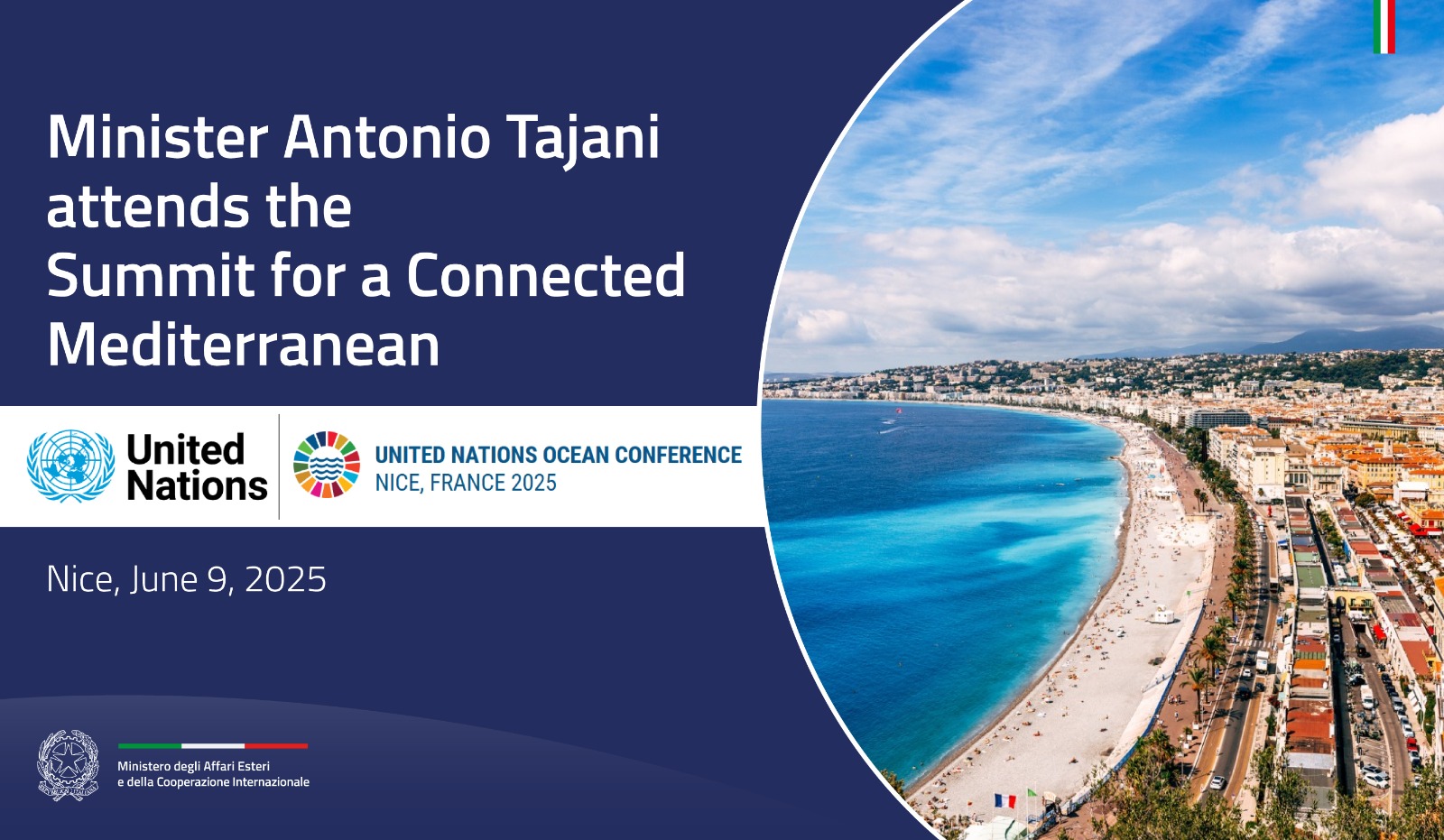The Minister of Foreign Affairs and International Cooperation, Antonio Tajani, will be in Nice this afternoon, on behalf of Prime Minister Giorgia Meloni, to take part in the “Summit for a Connected Mediterranean”, chaired by President Macron, on the sidelines of the Third United Nations Ocean Conference (UNOC3).
Coinciding with UNOC3, which will be held in Nice from 9 to 13 June, France has organised some geographical or thematic meetings, including one on a “Connected Mediterranean”, to which the countries most involved in the Mediterranean basin, the Gulf countries, the EU and international financial institutions and the Heads of some of the main naval ports of the two regions have been invited. The Summit is dedicated to the theme of connectivity, in its physical, digital and energy dimensions. With regard to the theme of energy connections, Italy has one of the most complex and diversified systems in Europe. Italy imports gas from 4 different corridors: the Algerian (TransMed pipeline also known as “Enrico Mattei” which passes through Tunisia); the Libyan (GreenStream pipeline); the Azerbaijani (TAP pipeline); the Northern European (TransitGas pipeline).
As to hydrogen, with a view to energy transition, Italy is aiming to adapt existing gas pipelines to allow the transport of hydrogen also through the so-called Green European Hydrogen Backbone for the transport of hydrogen from the Mediterranean and North Africa to Europe. The Southern Hydrogen Corridor (South2Corridor) – a 3,300 km network dedicated to the transport of green hydrogen that should connect Algeria and Tunisia with Italy, Austria and Germany – must be seen in this context.
With reference to electricity, Italy aims to strengthen electricity interconnections and increase the energy resilience of the country and its partners, particularly in North Africa and the enlarged Mediterranean, by facilitating the development of renewable energy generation plants on site. In fact, Italy boasts some of the best transnational electricity connections in Europe with France, Switzerland, Austria, Slovenia, Montenegro, Greece and Malta. The construction of an electricity interconnection between Italy and Tunisia (ELMED cable) must be seen in this connection. There are further projects for potential connections with Egypt, Algeria, Tunisia and Libya. Among these, the MedLink project by Zhero is worth mentioning, which envisages the construction of both cable connections from Algeria and Tunisia to Northern Italy, and renewable energy generation plants in partner countries.
Finally, in the maritime transport sector, there is the IMEC project, the India – Middle East – Europe Economic Corridor, which sees the port of Trieste positioned as a primary entry hub.

